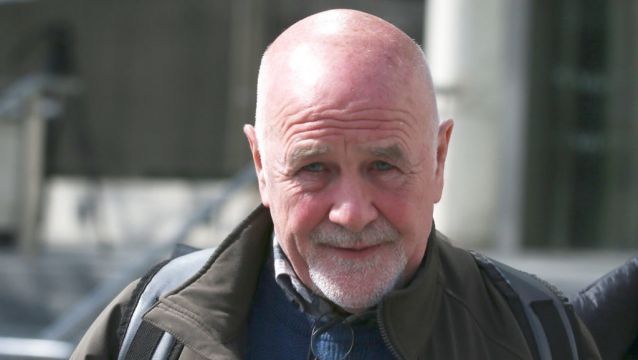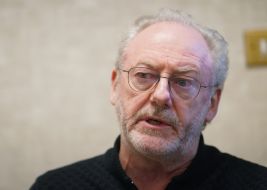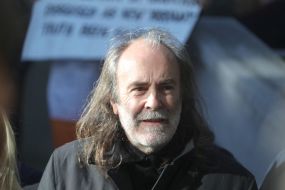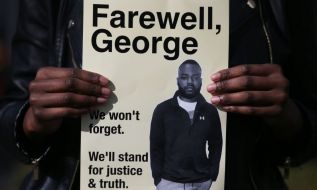Four senior executives of Custom House Capital have been sentenced for their roles in a “highly organised” and “sophisticated” operation to defraud investors in the firm over a decade ago.
The company's former CEO Harry Cassidy (67) was handed a sentence of six years and 10 months by Judge Orla Crowe on Friday at Dublin Circuit Criminal Court.
Judge Crowe said victims were “systematically deceived in a sophisticated operation” which was carried out for over two years by people who owed them fiduciary duties. She said the offending was “most egregious” and involved a “gross abuse” of trust and duty.
She handed John Whyte (53), former head of private clients, a sentence of four years.
Paul Lavery (47), head of finance, received a sentence of three years.
John Mulholland (73), non-executive director of Custom House Capital (CHC), was handed a 12-month sentence.
Cassidy, of Clon Brugh, Aitkens Village, Stepaside, Dublin, Whyte of Beechpark, Lucan, Dublin, and Lavery of Rafeenan, Ballynod, Co Monaghan, pleaded guilty to conspiring with others to defraud investors in and clients and customers of CHC by intentionally misleading them as to where and/or how their assets had been placed contrary to common law.
John Mulholland of The Foxes Covert, Mount Juliet Estate, Thomastown, Co Kilkenny, pleaded guilty to one count of being neglectful in the discharge of his duty of as a non-executive director of CHC.
Deception
The court heard this was in relation to the commission by the company of acts of dishonestly by deception inducing clients to entrust funds to the company or to refrain from removing funds previously entrusted to the company with the intention of making gain for itself and causing loss to another.
All of the offences occurred within the State on dates between October 1st, 2008 and July 15th, 2011.
The courtroom at the Criminal Courts of Justice was packed with many people standing at the back of the court as Judge Crowe finalised the case.
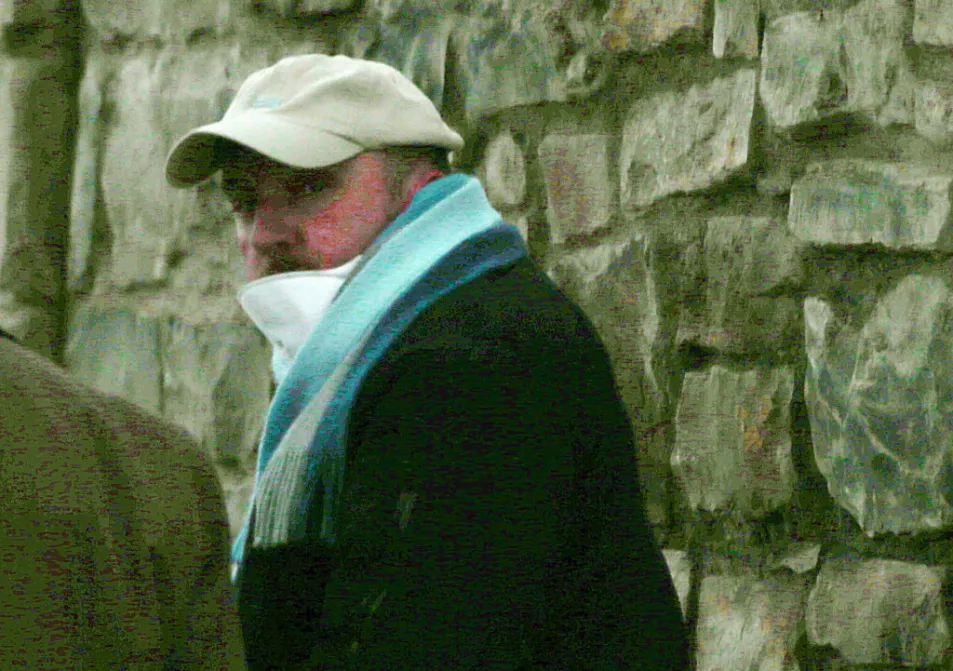
The court previously heard that CHC entered agreements to buy properties in mainland Europe at the time of financial crash. In 2008, CHC began to use client funds to meet these obligations, often without the knowledge or authorisation of clients.
It was the prosecution's case that transactions on CHC's systems were backed out of property before valuations were issued to clients. These valuations were misleading and did not show clients the true location of their funds.
Judge Crowe said the scheme “actively misled clients” because “their money was not where they thought it was”. She noted that this scheme continued for over two years.
Client money
When High Court inspectors were appointed to CHC in 2011, they found that €56 million of client money had been inappropriately transferred to property investments. A liquidator was later appointed to the company, with the process of winding down the company expected to continue until 2025.
In an update to the court, CHC's liquidator Kieran Wallace said €61 million in client funds were found to have been misappropriated. €41 million (64 per cent) of this amount has been recovered, with clients receiving €39 million so far as of March last. A total of €253.4 million across over 3,000 accounts was held by the company on the date of liquidation.
A total of 202 victim impact statements were submitted to the court in advance of the finalisation of the case.
Judge Crowe said the statements outline the “very significant” effects on the victims and their loved ones. She said the court was also conscious that “some people have passed away in the intervening period”.

She noted that the vast bulk of CHC's clients were saving for their retirement and many of the victims had suffered “significant financial losses”, which was an aggravating factor.
She said the offending caused “devastation” in the lives of “these blameless people who put their trust” in CHC. She noted that many of the victims referred to feelings of shame for being duped.
“The court views this as misplaced,” she said. “They were systematically deceived in a sophisticated operation which went on for over two years by people who owed them fiduciary duties.”
'Fiduciary duty'
Judge Crowe said other aggravating factors included the “significant breaches of fiduciary duty” and the impact on the affected clients. She said Cassidy was in “overall control of the scheme” while Whyte and Lavery were both “actively involved”.
She noted that the evidence before the court showed that Mulholland was “aware of the issue from early on” but “did nothing about it”.
Judge Crowe noted the four defendants had all entered guilty pleas, had no previous convictions and had “until now unblemished characters”. She said the guilty pleas were of value as they avoided the need for a long and complex trial.

She said she would also take into consideration the mitigation outlined on behalf of the four men, their expressions of remorse and the materials handed into the court on their behalf. She also noted that a “considerable period of time” has passed since the offending occurred.
Judge Crowe said conspiracy to defraud is a common law offence with no fixed penalty. She said the courts have generally adhered to the principle that the sentence for conspiracy should not exceed that for the substantive offence, which had been suggested as either theft or deception.
Custodial sentences
Judge Crowe said the court had carefully considered the offending in this case and in light of its scale and duration, the number of victims involved and their losses, the court was “entitled to depart from the maximum sentences set out” for these offences. She said the threshold for custodial sentences had been reached.
She noted Cassidy was a founder, major shareholder, director and chief executive of CHC. She said the court was entitled to conclude that he was the “principal party and originator of the plan” as “nothing happened” within CHC “without his say so” as he was the “dominant” person within the company.
Judge Crowe said Cassidy breached “every duty and all trust placed in him” and imposed a headline sentence of 14 years.
She reduced this sentence to seven years, taking the mitigation into consideration. Cassidy is also to be given credit for the two months he spent in custody in Germany, giving him an effective sentence of six years and 10 months.
Judge Crowe noted Whyte was a director of CHC and a minority shareholder, who took part in the scheme and “didn't do anything” to stop it. She said his culpability is lower than that of Cassidy and set a headline sentence of eight years, which she reduced to four years.
Judge Crowe said while Lavery was a salaried employee of CHC, he was “actively involved” in the scheme and “carried out duties that he knew to be wrong”.
Mitigation
Judge Crowe noted submissions made on behalf of Lavery stated he was not qualified for the role he held. However, she said he was a qualified accountant and could have chosen to leave the company, but instead “followed instructions”. Judge Crowe noted Lavery's culpability was lower than that of Cassidy or Whyte and set a headline sentence of six years, which she reduced to three years.
Judge Crowe noted that Mulholland had pleaded to a different court, that he was neglectful in the discharge of his duty as a non-executive director. She said it could be “reasonably inferred from the evidence that he was fully aware that matters were awry” and had “demonstrated knowledge” about what was happening within CHC, but “did nothing” during the period in question.
She set a headline sentence of two years, which she reduced to 12 months with the mitigation taken into consideration.
Mulholland was also charged with conspiracy to defraud, but the court was told a nolle prosequi was to be entered in relation to this.
Victim impact statements
A total of 197 victim impact statements were submitted to the court. Five victim impact statements were read in full to the court, while extracts were also taken from a selection of other statements.
Clients spoke of the financial losses they had suffered and of the emotional and psychological effects they and their loved ones had faced over the last 10 years. Some statements also outlined the devastating impact of the loss of savings and investments intended to provide a pension.
Nick Coy said his aunt Helga asked him to look after her investments in CHC as she was living in Germany. He said he didn't tell his aunt, who passed away in 2021, about the company's collapse in the hope that her money might be recovered.
Mr Coy said his aunt's lifework was “effectively stolen” by Cassidy. He added that his aunt lost many things during the Second World War, but Cassidy “did more damage” to her life.
Another CHC client, now 74, said they had never established the full extent of their losses and have had to continue working. They said they wished the defendants “no rest in this life for their ill deeds”.
A 72-year-old CHC client said her net loss was over €143,000. She said she received assurances from CHC that her money was safe, but later learnt that money was taken from her account without permission. She said the collapse of CHC still “haunts” her and she lives with “constant fear” about her financial security.
Huge stress
In another victim impact statement, Catherine Heron said the family's small business almost went into administration following the collapse of CHC, which caused huge stress to her late husband Patrick, who passed away in 2014. Ms Heron said she wanted to be present as her late husband couldn't be. She said she felt he was with her in court.
Detective Inspector Alan McGovern told Lorcan Staines SC, prosecuting, that CHC's core activities included investment management and pension advisory services. The company bought a large portfolio of investment properties in mainland Europe.

CHC had entered multi-million euro agreements to buy properties in Europe at the time of the financial crash in 2008. At this point, the company had paid deposits, but was not in a position to transfer money to complete the agreed property transactions.
The court heard that CHC began to use client funds in 2008 to meet these obligations, often without the knowledge or authorisation of the affected investors.
Around 95 per cent of the shares in CHC were owned equally by Mulholland and Cassidy, while Whyte had a shareholding of 5 per cent.
The court heard that the liquidation of CHC is complex and expected to continue for another 24 months.
